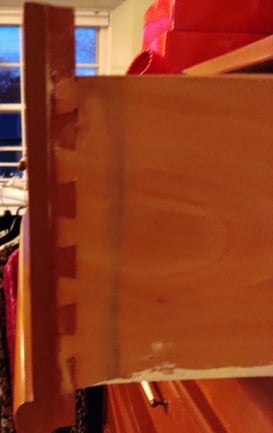Business clichés range from annoying to nonsensical to downright offensive. We’ve discussed them several times in the past, but today we’re looking at the ones you submitted—things that drive you crazy that you wish you’d never hear again. After putting the call out to friends, colleagues, and loved ones, we’re breaking down (in three parts) 24 annoying business clichés to get rid of for good.
Part 1- Nonsense
Whether it’s made-up words or painting an image that doesn’t fit, business folks are fantastic at spouting jargony nonsense that doesn’t add information or lend itself to easy interpretation. It’s time to forgo these clichés:
Synergy/Synergize
This word is business jargon at its finest. It doesn’t mean a lot, but it gets thrown around by people who want to sound modern and innovative. In my area, companies attach synergy to healthcare, pharmacies, business planning, gymnastics, auto repair, tow services, and an employment agency. What does synergy tell us about all these different places? I don’t have a dang clue. I’ve never heard it used in a coherent sentence. Synergy is a fill-in for “let’s make it sound like something futuristic is happening.”
If you want to use synergy for its actual definition, swap it for a word or phrase that regular people use instead: Cooperation. Cooperate. Team work. Work together. These words make sense to the average listener, and have the bonus effect of not making you sound like you swallowed a business textbook.
Back of the envelope
Anything back of the envelope is sketchy. It’s someone grabbing whatever’s nearby—envelope, napkin, coffee sleeve—and writing a quick, unofficial proposal or estimate for future services or collaborations. It’s a calculation based on guesses, meaning it doesn’t hold any water. Depending on the honesty and competence of the estimator it might get you close to a real number, but even then it’s an informal stab. If you take your envelope back to your finance department, they will tell you it’s worthless.
That’s why this is a cliché to stop using: you as a businessperson shouldn’t be doing anything back of the envelope. Always get and give a solid, verifiable estimate. One you can take to your financial department with confidence.
Dovetail
When I asked friends and colleagues for their most hated business jargon, author and writing teacher Erin Lebacqz volunteered this one. I had to google it.
It’s not that I don’t know what a dovetail joint is; my father and grandfather are carpenters. I’ve spent plenty of time in the shop. A dovetail looks like this:

My first guess was related to the zigzag pattern: maybe it means going back and forth about something? Being divided into opposing sides?? In business, it turns out it means two things (particularly two ideas) that work well together or lead into each other. They fit together, like pieces of wood in a dovetail joint. It’s not intuitive, especially if you think the word refers to the actual rear end of a pigeon.
Dovetail comes in sentences like “these ideas dovetail nicely,” which, if it were true wouldn’t need to be stated. You don’t need to specify that peanut butter goes with jelly, or fish goes with chips, or miso goes in soup. If you’re offering me grape jelly and fried cod soup, however, you’d probably need to convince me they go together first. Maybe these flavors unexpectedly meld into something magical and delicious, which if so, great! Tell me about why and how those flavors come together. But don’t give me an implausible combination and then use a buzzword like dovetail to justify it.
Boil the ocean
When someone in business warns you not to boil the ocean, they mean “don’t try; that task is impossible,” or “you’re taking on too much.” To be fair, this phrase brings up several interestingly cartoonish images: a ragged-looking person on a beach with an increasingly large pile of smoldering, damp matches; an extremely large expanse of fish stew; or in the case of Zach Weinersmith’s SMBC comics, God’s explanation for climate change. But inspiring weird mental pictures is not the goal of business communication. The goal is to communicate.
If you’re trying to tell someone not to make things too complicated, and you use an incoherent metaphor to do it, are you really trying to reduce complication? Instead of telling someone not to boil the ocean, express your concerns directly. Share what you think is too complicated, and how you propose to fix it.
Ideate
I am a huge fan of verbing nouns when there’s a need. Every time someone complains about the Millennial/Zoomer love of the word adulting, I’m the first to defend the creation of new words to express previously inexpressible experiences. The key here is when there is a need.
There is already a word for making ideas. It’s called thinking. If you want to express specifically setting aside time to come up with ideas on a specific topic, we have a word for that too: brainstorm. This is not a case where you need a new word for a new idea. Thinking is not a fresh concept. Please stop making up words to make normal things sound more exciting.
Drill down
This made me think of the woodshop again, and yet again I had to look up the meaning. Is it making space for something necessary, like drilling a pilot hole for a screw? Is it like nailing something down, securing and confirming it? Are we talking about a drill press, an electric drill, an old school turn crank manual drill? Can it double as an electric screwdriver?
After drilling down I learned that drill down is less like a shop drill and more like an oil rig—it means to search for something. It’s like digging deep or doing a deep dive on something. The action involved—research—is good and important. The problem here is the unnecessarily confusing phrasing. If you need to drill down on a topic, just be direct. Say “we need to research this to find an answer.”
In (someone’s) wheelhouse
“Fun fact! A wheelhouse is a part of a boat!” Janet (D’Arcy Carden), the AI assistant in The Good Place cheerfully announces to Ted Danson and William Jackson Harper. The impeccable writing in the afterlife comedy has Danson’s overly formal, pencil-pushing “architect” spout this phrase at the perfect moment for it to be misunderstood by the smartest person in the universe, showing the exact problem with this cliché. It makes no sense.
Every time I hear someone say something is in their wheelhouse, this scene replays in my head. Unless you’ve got a boat to pilot, you likely have never seen the inside of a wheelhouse yourself. (It’s the little enclosure around the helm/steering wheel.) Yet somehow this has gone from a term for a part of a boat, to a term for the sweet spot in a baseball player’s strike zone, to a whole bunch of terms in business.
When something is in your wheelhouse, it’s in your area of interest or expertise. This derives most closely from the baseball definition. The wheelhouse of a business is its center of management. This version relates more directly to the original definition. Do you notice what I notice about these phrases? None of it is intuitively connected to the meaning of the words themselves. Without very specific understanding of the linguistic trip from boats to batters to business lingo, this phrase doesn’t make sense. So it becomes business jargon at its worst: a weird phrase whose definition you have to guess at, and then memorize in order to understand the talking heads around you. And then, without realizing it, you spread the habit to others through mindlessly using it yourself, like some bureaucratic zombie.
Stop the spread of infection. Replace in someone’s wheelhouse with in someone’s area of expertise or interest, or is something someone is good at.
Negative growth
When you talk ridiculous business euphemisms to avoid saying something upsetting, negative growth is one of the worst. You can’t even reverse it without sounding equally unhinged. “Positive decline?” “Failing up?” “Shrinking well?” “Losing, but looking great doing it?”
Negative growth is in the realm of “so non-sensical I can’t believe it’s actually something people say out loud.” This isn’t even trying to make the best of a bad situation. It’s straight up saying, “Bad is good. No really. Trust me on it.” No one is fooled by this linguistic embroidery over a failure. Just say you took a loss, describe your plan to fix it, and move on.
Negative growth isn't only non-sensical, it's dishonest. Hiding the truth is the common theme in the next eight clichés, so stay tuned for Part 2.
About the Author
Kate Callahan is a Marketing Specialist for WordRake. Before her passion for learning and writing led her to join the team in 2023, she worked in non-traditional education, content creation, and translation. She started her career by teaching ESL to elementary school students in Japan. You can follow her on Twitter @KateC_Writing or connect on LinkedIn.










